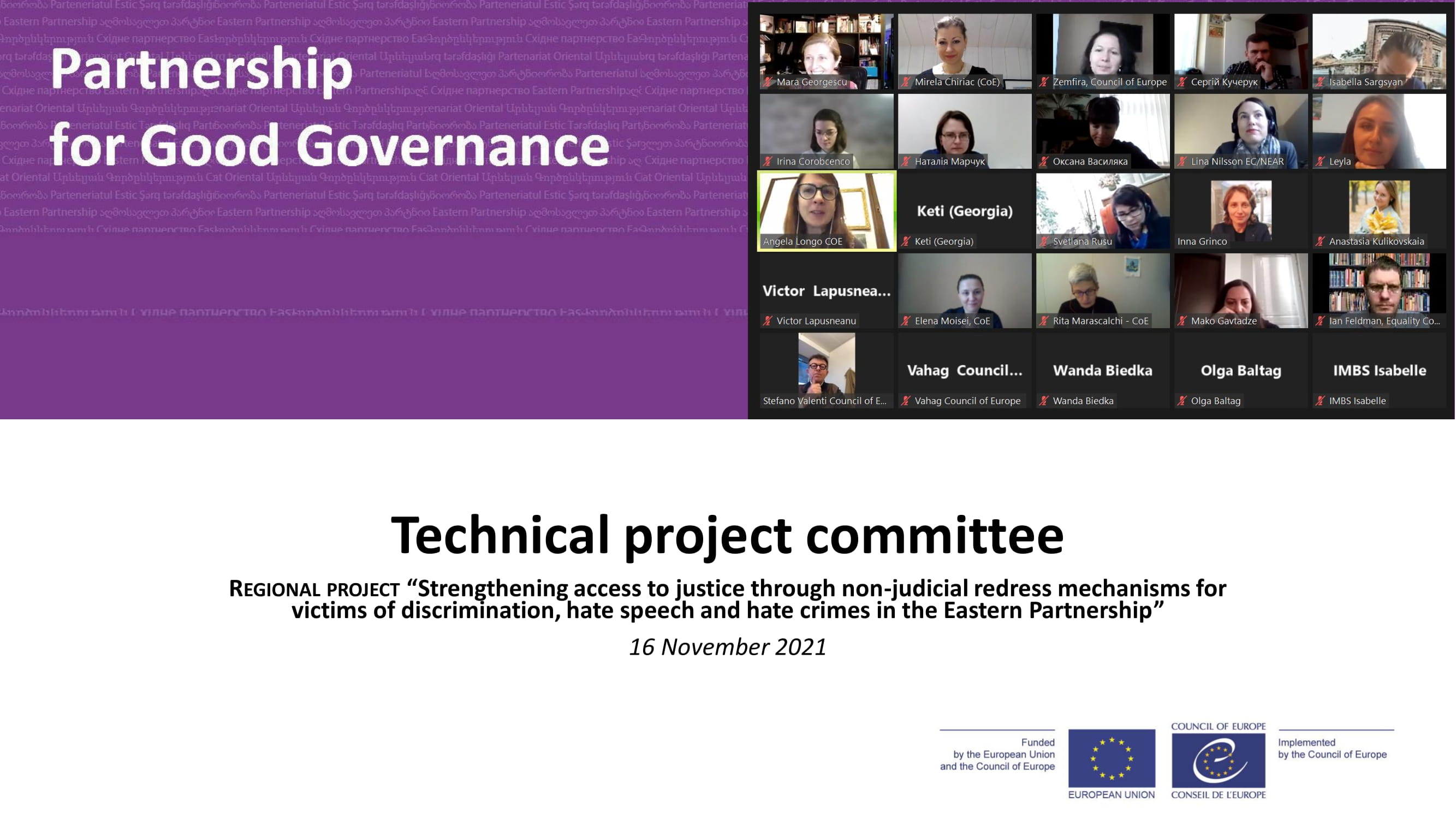The European Union and the Council of Europe are working together in Eastern Partnership countries to combat discrimination, hate speech and hate crimes.
On 16 November 2021 the third Technical Project Committee meeting of our joint project “Strengthening access to justice for victims of discrimination, hate crime and hate speech in the Eastern Partnership”, was held with the aim to discuss the project results, challenges and plans for the future of the project in the framework of extension until August 2022, as well as the needs to be taken into consideration for future actions in the field of equality and non-discrimination.
The meeting was an occasion to re-engage project stakeholders, including equality bodies/Ombudsoffices, public institutions, civil society organisations, EU representatives from the Directorate-General for Neighbourhood and Enlargement Negotiations (DG NEAR) and EU Delegations in the Eastern Partnership region, Ministries of Foreign Affairs, and representatives from the Council of Europe external offices.
Important project outcomes since September 2020 were presented during the event and this provided the opportunity to discuss in an extended format with the project stakeholders about the achievements, challenges and priorities for the implementation of the project until August 2022.
Meeting attendants emphasised in their feedback the constant work, flexibility and openness of the project in addressing the subjects of equality and non-discrimination, under the four project pillars: legislative support, capacity and institutional building, awareness raising and enhancement of civil society, and combating hate speech through comprehensive strategies. They also encouraged the continuation of the project in long run as a response to the continuous needs to sustain the fight against discrimination, hate speech and hate crimes.
The meeting was organised in the framework of the project “Strengthening access to justice for victims of discrimination, hate speech and hate crime in the Eastern Partnership” funded by the European Union and the Council of Europe and implemented by the Council of Europe in the framework of the Partnership for Good Governance II.




